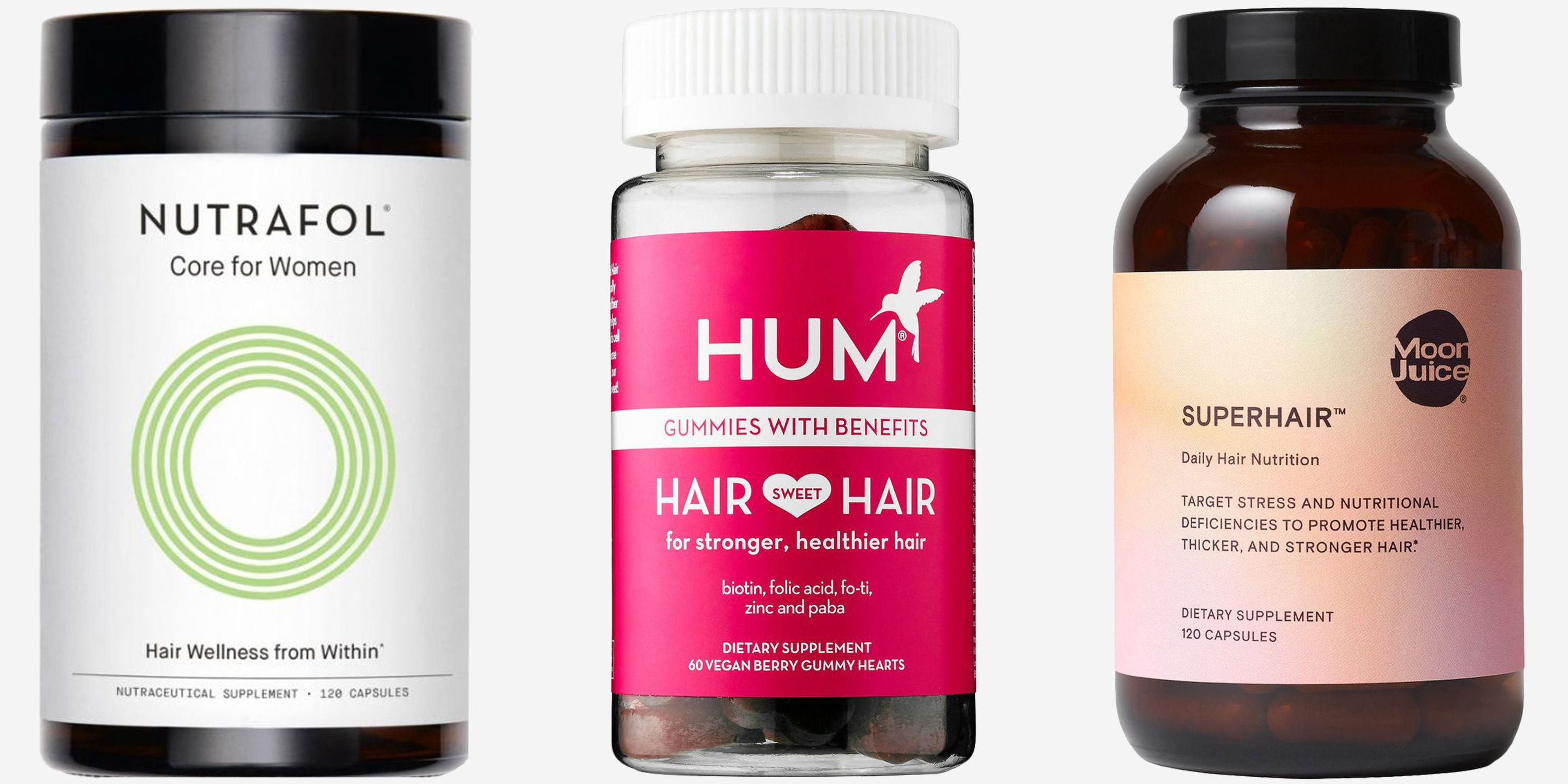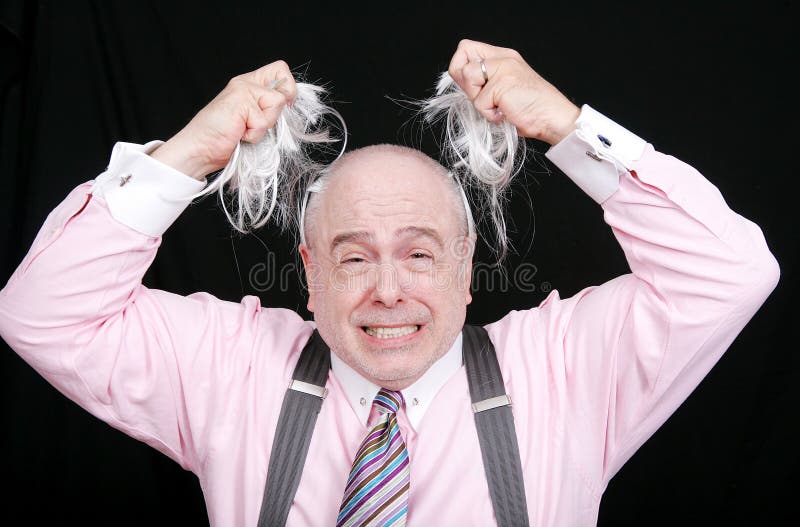Table Of Content

“Some foods that you can incorporate into your diet that can help add to your hair loss prevention plan include bone broth, eggs, seaweed/ kelp, seeds (flax, sunflower, chia), fish oils, and berries. Avoid alcohol, sugar, and processed foods which are DHT blockers,” advised Dr. Maclellan. In addition, a small randomized clinical trial showed that capsaicin and isoflavones together can enhance hair growth in individuals with alopecia.
Are there side effects to vitamins for hair growth?
The key to choosing the best vitamins for hair growth is knowing which nutrients you aren’t getting enough of. A healthcare provider can do blood work, evaluate any nutrient gaps in your diet, or highlight potential medical problems such as a thyroid disorder, hormone imbalance, or other underlying disease. In some cases, a multivitamin, protein powder, or specific nutrient may be able to promote hair regrowth. With the help of five hair care experts, including medical doctors and registered dietitians, we’ve rounded up some of the best vitamins and supplements for hair growth on the market to meet various needs. Unfortunately, hair loss around three to six months after delivery is completely normal.

Nature's Bounty Biotin Supplement
Certain vitamins and supplements may promote hair growth and healthiness in individuals who have nutritional deficiencies. This is because research suggests deficiencies in vitamins and minerals such as zinc, iron and vitamin D are linked to hair loss. More research is needed to determine the efficacy for hair growth supplements in individuals without nutritional deficiencies. The ingredients that are going to help your hair growth vary from person to person. Generally, supplements are filled with vitamins that most people tend to through food every day. However, if your doctor confirms you’re vitamin-deficient, certain vitamins could potentially (potentially!) help with hair growth, says Dr. Bhanusali.
Best Vitamins for Hair Growth in 2023 - CNET
Best Vitamins for Hair Growth in 2023.
Posted: Thu, 28 Mar 2024 07:00:00 GMT [source]
Hum Nutrition Hair Strong Gummies
Because of this, choosing a hair growth supplement that has been third-party tested can ensure that the product contains the ingredients listed on the label. Vitamins A, C and E support healthy skin, hair and nails, while hyaluronic acid fights aging skin such as wrinkles. The included vitamins and minerals in this Nature's Bounty multivitamin range from 17% (iron) to 16,667% (biotin) of your recommended daily value. Ultimately, to improve hair growth, you need to understand the reason for hair loss or lack of growth. Ensure you're eating enough calories and protein as well as consuming a variety of foods so you get enough of each of the vitamins and minerals that support hair growth. If you’re experiencing significant hair loss or have thin hair, hair growth vitamins and supplements can sound attractive.
Now Foods Iron tops our list for a hair growth iron supplement because it contains iron bisglycinate, a form that is usually better tolerated than other forms of iron. It’s also vegan, made without gluten, and free of the most common food allergens. These gummy vitamins feature an all-star blend of vitamins A and C, as well as biotin and zinc to support all of your beauty needs—including healthy hair growth. The chewables boast a sweet strawberry flavor that's easy to stomach, too. Many individuals are able to consume vital nutrients through a healthy diet. However, multivitamin and mineral supplements are generally safe in healthy individuals, given that the supplement provides nutrients in amounts that adhere to the recommended daily allowance (RDA).
But sometimes, a multivitamin or a nutrient-specific supplement will do. Here are seven high quality supplements that supply the nutrients your hair needs. Taking a biotin supplement may promote hair growth in individuals who have a biotin deficiency. However, more research is needed to determine the efficacy of biotin supplementation for hair growth in healthy individuals. Topical steroids or steroid injections are often used as a short-term fix to help get the shedding under control, says.

Do vitamins actually help your hair grow faster?
Of course, not every vitamin that advertises hair-boosting benefits delivers on the promise of healthy hair growth. Some are overhyped, others are downright ineffective, and still others carry harmful side effects. To help you sift through the options–and determine which tablets, capsules, or gummies are worth your dollars–we consulted dermatologists. Here are the best hair growth vitamins worth considering, plus answers to commonly asked questions.
The Best Supplement for Hair Growth, According to a Dietitian - Verywell Health
The Best Supplement for Hair Growth, According to a Dietitian.
Posted: Fri, 17 Nov 2023 08:00:00 GMT [source]
The authors further noted concerns about the lack of FDA regulations that cover the efficacy, safety, and quality of supplements. Thus, nutritional supplements could potentially contain inefficacious or adulterated ingredients, with the latter resulting in side effects. Both B vitamins and zinc play a role in hair follicle health, with B vitamins helping in the creation of red blood cells.
If you are vegan, dairy-free or gluten-free, certain vitamins are made for you. Bottles will state on the label if they were made without gluten, dairy or animal products. Each bottle of Nutrafol contains vitamins A, C, D, biotin, iodine, zinc and selenium.
The catagen phase lasts about 14 days and is followed by the telogen or resting phase which lasts 3–4 months. Hair growth remains dormant during the resting phase and is followed by hair shedding. It’s critical to cell health and is thought to make your scalp and hair healthier. The protein is used to make keratin — the protein that hair is mostly made of.
It’s best to work with a doctor because the best pill for hair growth will depend in your individual needs and the cause of your hair challenges, such as possible nutritional deficiencies or other health issues. For example, Nutrafol Women is our top pick for best subscription supplement for hair health. The company also makes a product specifically formulated to help with postpartum hair loss. This women’s multivitamin contains nutrients derived from whole food ingredients, which may be more bioavailable. Bioavailability describes the amount of nutrients that are able to be absorbed and used by the body. HairAnew's vegan formula contains biotin, vitamin B, vitamin C, and zinc.
Dr. Khetarpal recommends one with B vitamins, zinc and at least 2,000 international units of vitamin D. This will typically contain higher doses of certain nutrients designed to support recovery postpartum, regardless of whether you choose to breastfeed. Information provided on Forbes Health is for educational purposes only. Your health and wellness is unique to you, and the products and services we review may not be right for your circumstances. We do not offer individual medical advice, diagnosis or treatment plans. Dr. Green recommends seeing a board-certified dermatologist to go over your options.
Some of the common types of hair loss include androgenetic alopecia, alopecia areata, and telogen effluvium. Yes, says dermatologist Shilpi Khetarpal, MD, with the help of some vitamins for hair growth like vitamin A and biotin and omega-3 fatty acids. It also includes vitamin D, iron, and zinc, all of which have been linked to hair loss in people with these nutrient deficiencies. Ritual’s subscription-based postnatal vitamin contains a variety of vitamins and minerals. It contains docosahexaenoic acid (DHA), an omega-3 fatty acid that may be effective in promoting hair regrowth, improving hair density, and reducing hair loss.
However, if you already get enough iron, note extra iron won’t help your hair grow. There are many other underlying reasons for hair loss or lack of hair growth including not eating enough protein as well as common health issues like thyroid disease and overall hormonal imbalances, explains Puello. Vitamins and supplements may support hair growth by providing essential nutrients that might be missing from your diet. While individual results vary, products rich in vitamins B, C, D, iron, zinc, and omega-3 fatty acids have been linked to healthier hair. To narrow down this list of best vitamins for hair growth, we consulted with the above dermatologists and trichologists on their own recommendations for patients. Then, we also dove deep into the ingredients of each treatment to determine which actually have ingredients that might encourage healthier scalp and hair.
Always consult a physician before undergoing lab work on this supplement. “If your hair loss is abrupt and without an identifiable trigger, your scalp is itchy or painful, or if your hair loss or thinning is accompanied by other symptoms, then a trip to the doctor would be especially warranted,” says Dr. Ellis. Yup, the magical acne-clearing pill can also be helpful for hair growth. “Oral spironolactone is a prescription blood-pressure medication that helps block androgens—male sex hormones—in females, which can help increase hair growth over time,” says Dr. Bhanusali. “Many patients find that their breakouts disappear and their hair is less oily too,” he says.
However, B vitamins (including biotin) aren’t a magic pill for hair growth if you already get enough of them through your diet. Those following a plant-based diet are at higher risk of vitamin B12 deficiency. Some supplements are formulated with these nutrients to support hair growth, strength, and thickness.

No comments:
Post a Comment